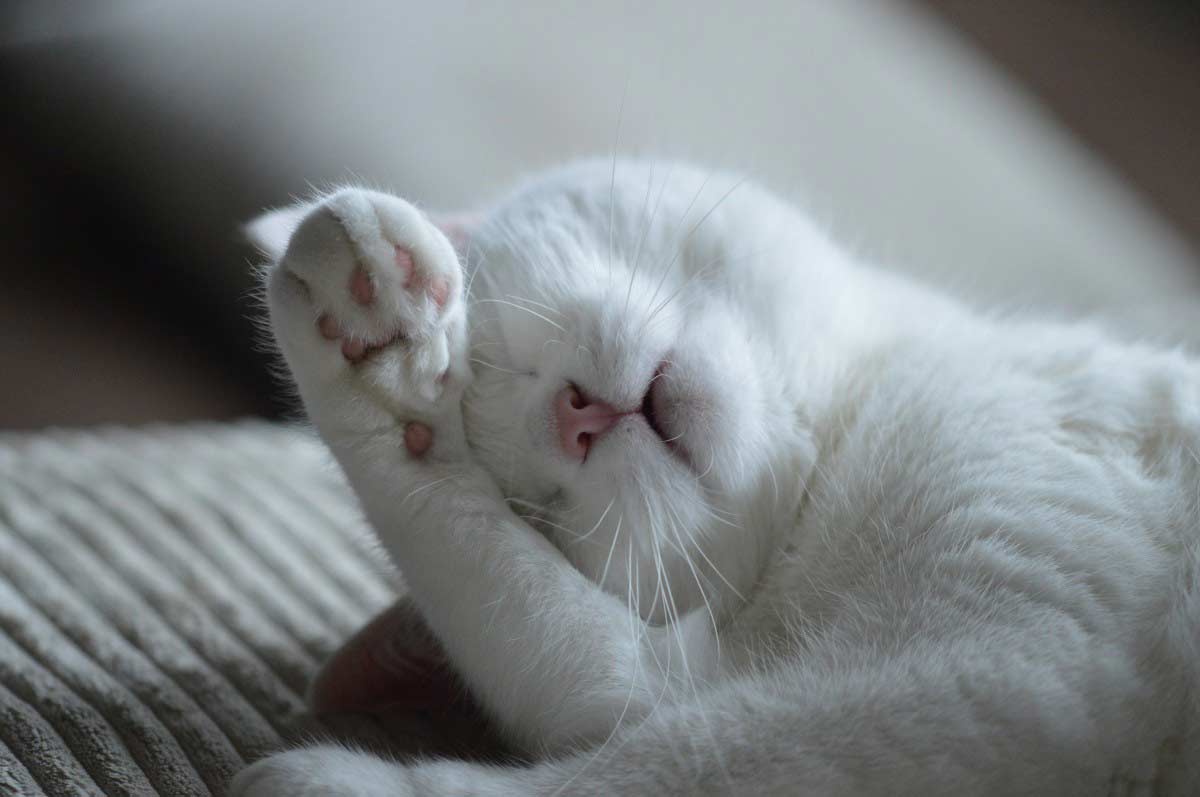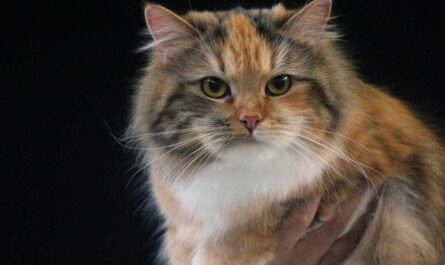Do cats grieve for the loss of anyone, or anything? What are the signs and how to help a grieving pet? The enigmatic world of feline emotions often eludes our understanding. Cats, with their graceful and often mysterious demeanor, possess a unique way of concealing their feelings. Yet, just like humans, they too experience moments of profound sorrow when they bid farewell to a cherished companion, whether it’s a human caregiver or a fellow feline.
In this exploration, we will embark on a journey into the complex realm of feline emotions, shedding light on the intricacies of how cats mourn and offering compassionate guidance on how to provide comfort during their challenging times.
The enigmatic world of feline emotions often eludes our understanding. Cats, with their graceful and often mysterious demeanor, possess a unique way of concealing their feelings. Yet, just like humans, they too experience moments of profound sorrow when they bid farewell to a cherished companion, whether it’s a human caregiver or a fellow feline.
Can Cats Grieve for Humans? Unveiling the Emotional Bonds
Recent studies have undertaken the task of challenging the age-old perception of cats as aloof and emotionally distant creatures. A particularly intriguing study conducted in 2019 at Oregon State University delved into understanding attachment styles in cats and kittens. This groundbreaking research involved the meticulous observation of cats in novel environments, coupled with the evaluation of their reactions when their human companions departed and returned.
- Cat Health Supplies on Amazon
- Cat Food Supplies on Amazon
- Cat Scratching Posts for Indoor Cats
- Cat Water Fountain on Amazon
- Cat Carrier on Amazon
- Cat Automatic Feeders on Amazon
- Cat Guide Book on Amazon
Astonishingly, the study unearthed that a staggering 65% of the cats exhibited secure attachment styles. This style of attachment mirrors the bonds seen between humans and their babies or even the steadfast companionship shared with dogs. The implications of this revelation are profound, suggesting that cats are indeed capable of forming deep emotional bonds with their human caregivers.
When a cat forms a robust connection with a human, the severing of that bond can be deeply distressing. The abrupt disruption of their daily routine and the heart-wrenching absence of a beloved caregiver can induce significant stress. This emotional turmoil often manifests in observable behavioral changes that we, as attentive pet owners, should be prepared to recognize. These changes might include shifts in vocalization, an increase in clinginess, and noticeable alterations in eating and sleeping patterns.
Do Cats Grieve for Other Cats? Navigating the Intricate Dynamics
Cats within a multi-cat household partake in a dance of intricate and diverse relationships. While some cats establish profound emotional bonds with their fellow felines, others lean towards a more independent and solitary existence. However, when the time comes for a deeply cherished feline companion to depart, it sets in motion a cascade of noticeable changes in the behavior of the remaining cat residents. These changes, with their nuances, have piqued the curiosity of researchers and pet owners alike, inspiring a quest to understand the concept of feline grief.
The Spectrum of Feline Relationships
In a multi-cat household, the dynamics between cats span a wide spectrum, mirroring the unique personalities of the felines themselves. Some cats form tightly knit emotional connections that echo the bonds observed between humans and their pets. These felines might spend hours engaged in grooming rituals, playful activities, or simply lounging together, forging connections that run deep and stand the test of time.
- Buy Cat Accessories on Amazon
- The Complete Guide to Adopting a Cat: Preparing for, Selecting, Raising, Training, and Loving Your New Adopted Cat or Kitten
- Amazon Best Sellers: Best Cat Training
- Amazon Best Sellers: Best Pet Cats
- Amazon Best Sellers: Best Cat Care
- Amazon Best Sellers: Best Cat Care & Health
- Amazon Best Sellers: Best Cat Breeds
Conversely, other cats adopt a more independent demeanor within the same household. They coexist peacefully with their fellow feline housemates, but their interactions, while harmonious, lack the depth of emotional connection seen in bonded pairs. These cats might share space and resources amicably but rarely engage in behaviors that suggest profound attachment.
The Grief Question: Delving into Feline Emotions
A captivating question has gripped the minds of pet owners and behavioral scientists alike: Can cats truly experience grief following the loss of a bonded feline companion? Deciphering the intricate emotional landscape of cats is a challenging endeavor, primarily due to their often enigmatic nature. Nevertheless, several studies have offered valuable glimpses into this enigma, shedding light on the potential for feline grief.
One notable study, conducted by the American Society for the Prevention of Cruelty to Animals (ASPCA) in 1996, embarked on a journey to uncover the behavioral changes exhibited by cats in the aftermath of losing a bonded feline companion. The findings of this research hinted at the possibility of grief in cats.
Observable Signs of Feline Grief: Expressions Beyond Words
The ASPCA study unveiled that a significant proportion of cats, numbering around 70%, displayed discernible alterations in their vocal behavior following the loss of a bonded feline companion. These alterations spanned a spectrum, ranging from an increase in vocalization to moments of sudden and profound silence. These shifts in vocal habits served as potential indicators of an emotional response to the loss.
Furthermore, the study found that nearly 46% of the grieving cats experienced a notable decline in their appetite. This reduced interest in food became an unmistakable sign that the loss of their companion had profoundly affected their emotional well-being.
- Cat Products for Indoor Cats
- Cat Toys for Indoor Cats Best Sellers
- Surprise Subscription Boxes for Cool Cat On Amazon
- Build Your Cat Box. 1 Box Every 3 Months
- Litter Boxes for Your Lovely Kitten On Amazon
- Toilet Training Kit for Your Cute Cat On Amazon
These findings propel us into a realm of thought-provoking questions concerning the depth of feline emotions and their capacity to experience something akin to grief when confronted with the departure of a cherished companion.
Compassion and Understanding for Feline Grief
While cats continue to remain enigmatic in many aspects of their behavior and emotions, studies like the one conducted by the ASPCA provide valuable insights into the potential for feline grief. The observable changes in vocalization and appetite among cats following the loss of a bonded feline companion offer glimpses into the intricate emotional world that our feline friends may inhabit.
While we may never fully unravel the depths of their feelings, these studies encourage us to approach the topic of feline grief with compassion and understanding. In recognizing that our cats, too, may mourn the loss of their cherished companions in their own unique and subtle way, we extend our love and empathy to these graceful and mysterious creatures during their times of emotional upheaval.

Understanding the Subtle Signals of Grief in Cats
In the unfortunate event that a cat loses a beloved companion, be it a human caregiver or a fellow feline, vigilant pet owners may discern a range of signs indicative of mourning. These signs encompass a spectrum of subtle yet poignant expressions:
1. Displays of Listlessness and Despondency
The once-vibrant demeanor of the cat wanes, replaced by an unmistakable sense of listlessness and despondency.
- Cat Breed Book on Amazon
- Cat Behavior Book on Amazon
- Cat Training Book on Amazon
- Cat behavior Products on Amazon
- Cat Breed Test
- GPS cat, dog, and Pet trackers
- Cat leash and harness set
2. Alterations in Sleeping Patterns
A cat’s choice of sleeping locations may deviate from their usual haunts, reflecting their shifting emotional landscape.
3. Changes in Vocalization Patterns
Vocalization patterns undergo a transformation, resulting in either an increase or decrease in talkativeness, which at times echoes their internal emotional turmoil.
4. Noticeable Loss of Appetite
A marked loss of appetite or significant shifts in eating habits may become apparent, potentially signaling the cat’s emotional distress.
5. Seeking Solace in Enclosed Spaces
The cat’s inclination to seek solace in enclosed spaces is coupled with a heightened tendency toward self-isolation.
6. Extended Absences for Outdoor Cats
Outdoor cats may exhibit extended absences as they navigate their grief by distancing themselves from their usual haunts.
7. Diminished Interest in Play
A diminished interest in partaking in play becomes evident, serving as a poignant indicator of the impact of their emotional upheaval.
8. An Increased Reliance on Remaining Caregivers and Companions
The cat exhibits an intensified reliance on and attachment to the remaining caregivers and companions, as they seek comfort and solace during this trying period.
Offering Compassionate Support to a Grieving Cat
Observing your cherished feline friend grappling with grief can be a profoundly heart-rending experience. It is precisely during these challenging times that your cat relies on your steadfast love and support more than ever before. Understanding how to provide this essential support is pivotal in helping your cat navigate the complexities of loss. Here, we delve into various ways to aid your grieving feline companion on this arduous journey.
- Buy Bird Accessories on Amazon
- Buy Cat Accessories on Amazon
- Buy Dog Accessories on Amazon
- Buy Fish Accessories on Amazon
- Buy Pet Accessories on Amazon
1. Quality Time – A Balm for Healing
Allocating additional time to your cat serves as a potent wellspring of emotional solace. Through affectionate cuddles, engaging in interactive games, and the occasional bestowal of special treats, you can effectively convey your unwavering love and reassurance. Physical contact, manifested through gentle petting and cuddling, possesses the remarkable ability to provide immense comfort to a grieving cat.
2. The Reassurance of Routine
Cats thrive amidst routine and predictability, and maintaining a steadfast schedule can impart a profound sense of security and stability. It is imperative to ensure that meal times and play sessions adhere to a predictable timetable. This dependable routine acts as an anchor, offering solace to your grieving cat amid turbulent emotional seas.
3. Providing Diversions – Alleviating the Pain
During those unavoidable instances when you must be absent from home, contemplate leaving behind an array of diversions to keep your cat content and engaged. A curated selection of toys, tantalizing treats, cat trees, and comforting objects can serve as delightful distractions. These diversions not only stave off boredom but also proffer a reassuring sense of familiarity and security.
4. Behavioral Management – The Virtue of Patience and Reinforcement
Grief may manifest through various behavioral changes, including shifts in vocalization. When your cat exhibits altered vocal habits, patience becomes a virtue. Refrain from reinforcing undesirable behavior by resisting the immediate urge to respond to excessive meowing or vocalizations. Instead, opt for positive reinforcement when your cat displays desired behavior. Offer praise, affection, or treats when your cat remains calm and composed, thereby encouraging these beneficial behaviors.
5. Deliberating the Introduction of a New Companion
The prospect of introducing a new pet into your household necessitates meticulous consideration. It is paramount to assess your cat’s temperament and unique requirements before making such a weighty decision. While some cats may derive solace and companionship from a new feline friend, others might experience heightened stress. Understanding your cat’s disposition and preferences is crucial in determining whether a new companion would serve as a source of comfort or additional strain.
6. Seeking Professional Guidance
Should your cat’s eating habits or litter box behaviors deviate significantly and persistently over an extended period, it is advisable to seek the counsel of a qualified veterinarian. These professionals can conduct comprehensive assessments, recommend relevant tests, and offer therapeutic solutions aimed at enhancing your cat’s overall well-being. Do not hesitate to consult with your veterinarian if you harbor concerns regarding your grieving cat’s health.
Extending Love and Compassion
By extending your love and support, you assume a pivotal role in guiding your cat along the intricate path of healing and recovery. In our acknowledgment of grief in cats, we unlock the potential to provide the support and care that our feline companions require during episodes of emotional turbulence.
While cats may not exhibit grief in the same overt manner as humans, their emotions are genuine, and a touch of extra love and compassion can indeed traverse a considerable distance in facilitating their healing process.
More Interesting Articles
- 23 Essential Health and Care Tips for New Cat Owners
- 14 Tips How To Introduce & Habituate a Kitten to a Cat
- 15 Top Reasons to Adopt an Older Cat Is a Good Option
- Should I Get A Cat or a Kitten? 15 Tips to Take Decision
- 19 Ways Cats Show Their Love & Affection to You
- How to Bathe Your Cat: With or Without Water, Not Do-Do
- Reasons Why Does My Cat Poop on My Bed? 16 Solutions
- Why is My Cat Pooping Outside the Litter Box: 12 Reasons
- 14 Cat or Kitten Behavior: How to Understand & Handle
- 8 Reasons to Decide Which is Better for You: Cats or Dogs?
- 34 Interesting Facts People Love to Learn about A Cat
- How to Get My Cat to Successfully Use the Litter Box
- A Complete Guide: How to Find the Perfect Cat for You
- How to Cut, Clip, or Trim Cat Nails: A Beginner’s Guide
- 30 Tips to Find the Best Way to Raise A Kitten Smoothly
- Egyptian Mau Cat Breed Profile, Care, Description, Behavior
- 10 Best Food for Older Cats with Sensitive Stomachs
- 10 Best Litter Boxes for Cats That Pees Over the Side
- 5 Best Cat Food Items for Sensitive Stomach Vomiting
- Best 5 Cat Food For Sensitive Stomach and Urinary Health



